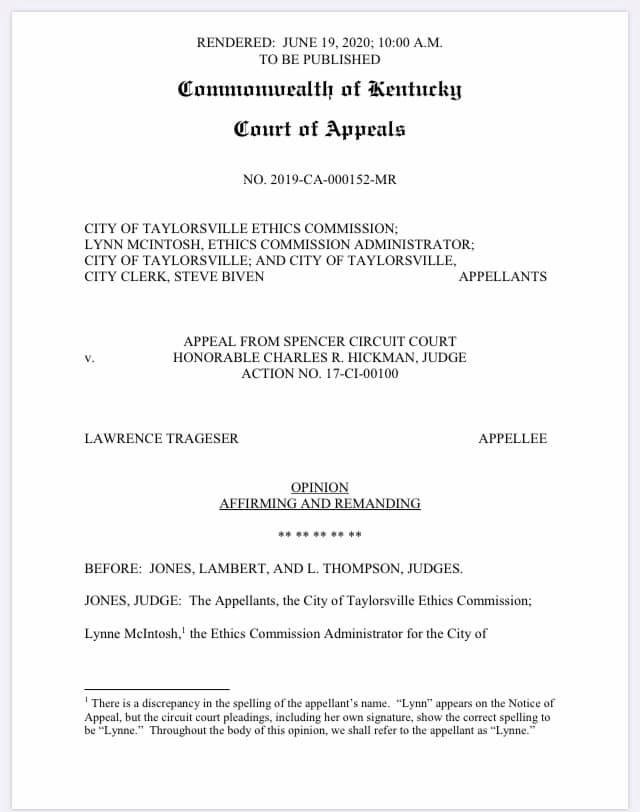
The Kentucky Court of Appeals today issued a published opinion rejecting the City of Taylorsville's efforts to silence a local critic, Lawrence Trageser, by means of a legal action against Trageser for compensatory and punitive damages in a case that is rooted in an open records dispute.
http://opinions.kycourts.net/coa/2019-CA-000152.pdf
The Court declares:
"The ORA is a statute that provides one mechanism for members of the general public to obtain government records through an official and orderly channel. The ORA does not provide a remedy to the City or to any government entity to seek civil damages for the publication of a document, even one exempt under the ORA. To put the matter a different way, the government can use the ORA as a shield; it cannot use it as a sword. The circuit court correctly dismissed the City's claim against Trageser."
The nod to Kentucky's first adjudicator of open records disputes, Assistant Attorney General Carl Miller, who used the shield/sword language in the seventies, is particularly satisfying.
Kentucky Open Goverment Coalition Director, Jeremy Rogers, represented Trageser.
He will receive attorneys fees for his efforts, and Trageser will receive monetary penalties of $25 per day, from Feb. 2017 up to and including those that accrued in the defense of the appeal.
A great victory for open government and a critical rebuke to public agencies that seek to weaponize the open records law to silence their critics.
The Spencer Circuit Court may have said it best in a lengthy quotation that appears in today's opinion:
"Equally troubling is the fact that the city brought an unfounded claim in this case for compensatory and punitive damages against Trageser in an apparent attempt at intimidation to dissuade him from further exercising his rights under the Open Records Act in this case and in future cases. This court finds this tactic by the City and its Ethics Commission to be in bad faith and designed to subvert the intent and purpose of the Open Records Act."
Will the City of Taylorsville seek discretionary review by the Kentucky Supreme Court? The better question is: What will it take to convince the city that it doesn't have a legal leg to stand on?
